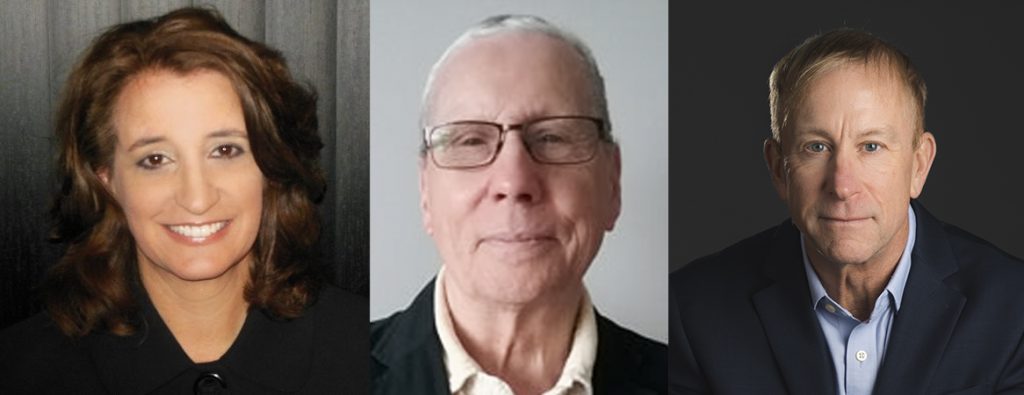
Mariia Novoselia
Staff writer
Explore & More is “not your typical children’s museum,” said its executive director Michelle Urbanczyk. For one, it provides free admission to Buffalo fourth-graders and their families.
The new Greater Buffalo Fourth Grade Cultural Park Explorer initiative, she said, was introduced June 5 and has already exceeded expectations. Together with Dennis Galucki, curator of Buffalo Day at Chautauqua Institution, and Mark Wenzler, the Peter Nosler Director of the Chautauqua Climate Change Initiative, Urbanczyk will present at the annual Buffalo Day panel.
The discussion about the initiative will take place at 3:30 p.m. today in the Hall of Philosophy.
The Explore & More museum, Urbanczyk said, pays a lot of attention to hands-on experiences, as they are more impactful than just “telling (kids) to protect the planet.”
The initiative provides free admission to students in between their third- and fourth-grade years. Urbanczyk said this age group was chosen because these children’s field trips and other informal learning sessions were curtailed to the COVID-19 pandemic.
“By the time we talk about protecting the planet or sustainability, (children) tend to be older. Granted, this is a topic that is very hard to do because in some instances it could be boring to kids; or it’s not the right brain development (level); or … you don’t want to scare little ones about what’s happening with climate – and also you don’t want it to become a political thing,” she said. “We just want to teach kids to understand about the world around them and then also have empathy about what’s happening around the world around them.”
The museum, Urbanczyk said, has a variety of exhibitions, including one on moving water, which teaches children about waterways and the Erie Canal. She said despite Buffalo being on the canal, many of the museum’s visitors have never been on water.
Another exhibition at Explore & More prompts the kids to think about what it means to be good neighbors.
“When we talk about sustainability, we have to talk about how we treat people first, how we listen to each other, and then we can have that water conversation,” Urbanczyk said.
Before the initiative was launched, in order to estimate the number of potential fourth-grade visitors, Galucki said, he and Urbanczyk took the total of 30,000 students from the Buffalo Public Schools System and divided it by 12, then they added students from private schools and homeschoolers.
The end figure, Galucki said, was about 3,500 visitors, and the initiative was budgeted for 1,200 – a rough third of all fourth-grade students in Greater Buffalo.
With many thankful parents and grandparents, Urbanczyk said, the number of visitors has already exceeded the museum’s expectations. Nevertheless, she said, Explore & More will keep welcoming fourth graders for free until September, as per the original plan.
“We’ve run out of money, which is a great problem to have for us because think about how many third- to fourth-graders with their families came into the museum,” Urbanczyk said. “I had no doubt we could do it – I just was surprised we could do it so early. … (This) tells the tale of people who are really itching to come into the museum, so we decided not to stop the momentum.”
The program is primarily funded by three sources, said Urbanczyk, with the biggest one being the 716 Foundation.
Galucki, who will be moderating the discussion, said he hopes it will help attendees see the importance of play, especially among family members.
“I think the world needs more of that,” he said.
Wenzler said visiting museums and parks with his daughter has helped him change his mindset and sense of time.
“As an adult, I’m very physically active. I tend to take on big physical challenges. I would just push myself to the limit … and I wouldn’t really spend as much time appreciating nature as I probably should have. Kids make you slow down. I would take my daughter to the same places I love to go camping and backpacking. … We would stop and play in the stream for an hour that I might have stepped over in a matter of seconds. … All of a sudden, when you focus close-up, you see the fish, you see the little animals and how they interact,” Wenzler said.
The Greater Buffalo Fourth Grade Cultural Park Explorer initiative, Wenzler said, was inspired by the success of a similar national program organized by the National Park Service. Called “Every Kid Outdoors,” it allows fourth-graders and their families to visit a number of federal recreation sites at no charge.
Exhibitions at Explore & More, Urbanzcyk said, are curated by the local community with the intent of telling the story of Western New York and the people who live there. She said she hopes they create memories, empower students to go to other museums, galleries, parks and ultimately, become “good stewards of the planet.”
The discussion panel is part of a larger Buffalo Day program, which also includes a presentation of the film “If Our Water Could Talk” at 5:15 p.m. this evening at the Chautauqua Cinema. This year, the overarching theme is “IMAGINE Western New York as a National Park.”
The inspiration behind the title, Galucki said, goes back to the late 2000s, when part of the Special Studies program at Chautauqua Institution, he was offering a course called “IMAGINE Buffalo in the 21st century.”
The course, he said, later evolved into a weekly program held by the Buffalo & Erie County Public Library. Based on his “Buffalo-Chautauqua idea,” Galucki said it set out to “explore American legacy through place based lifelong learning and imagination.”




